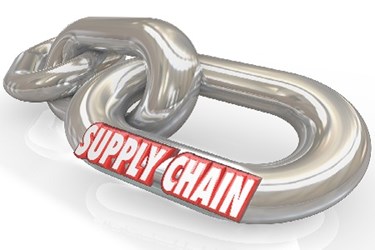7 Qualities Of Strong Supply Chains

By Sam Lewis

Supply-chain management is a constantly-evolving practice that requires strong planning, attention to detail, technology, and the right people for success. Below are seven traits that companies with superior supply-chain management abilities possess.
Excellent Management
The supply chain is an extremely complex and dynamic system. Companies with leadership that understands the complexities and dynamics of it, and can adapt as the supply chain changes are likely to outperform the competition.
Utilizing Advanced Analytics
Furthering the notion of leadership, management teams should be using channel data to gain a sense of demand and translate that demand into practices. Channel data should be used to gauge consumers’ needs in unpredictable markets.
Develop Robust Horizontal Processes
Companies that demonstrate strong supply-chain practices are also illustrating other strong practices, such as managing revenue, planning for sales and operations, and corporate social responsibility. Companies that are well-balanced in sales and operations procedures, they can see up to 10 times better inventory performance.
Having The Proper Tools
Companies with the most robust and high-performing supply chains have developed human resource departments specifically for the supply chain. In addition, these companies have finance teams dedicated specifically to aspects of supply-chain management, as well as company centers focused on excellence in the supply chain. According to a Supply Chain Insights report, only 14 percent of businesses believe their supply chain’s human resources is being managed well, while just 40 percent even have a human resources team dedicated to developing talent in the supply chain.
Design Your Supply Chain
According to the report, only 22 percent of companies are active when it comes to making their own supply chain. This means that almost four out of five companies are not controlling the design of their supply chain. Companies that succeed are designing and redesigning their supply chains to be cross-functional. From supplier, inventory, and stocking locations to the design of the channel, being active in how a company’s supply chain is created exemplary of success.
Apply Precise Metrics
Managing a supply chain is tricky business and is only more difficult if metrics are not united on one front. Operating margins, inventory, return on invested capital, revenue, and projected figures should be handled as one, cross-functional system.
Utilize Advanced Planning
Despite the availability of advanced supply-chain planning technologies, the most-frequently used planning tool is the spreadsheet. However, spreadsheets are far from the best tool to manage today’s complex supply chains. Scalability, weak forecasting abilities, and poor user interface are just a few hindrances of using a spread sheet to manage a supply chain. Companies that implement and utilize the latest supply-chain technologies are the ones who exemplify advanced supply-chain management.
